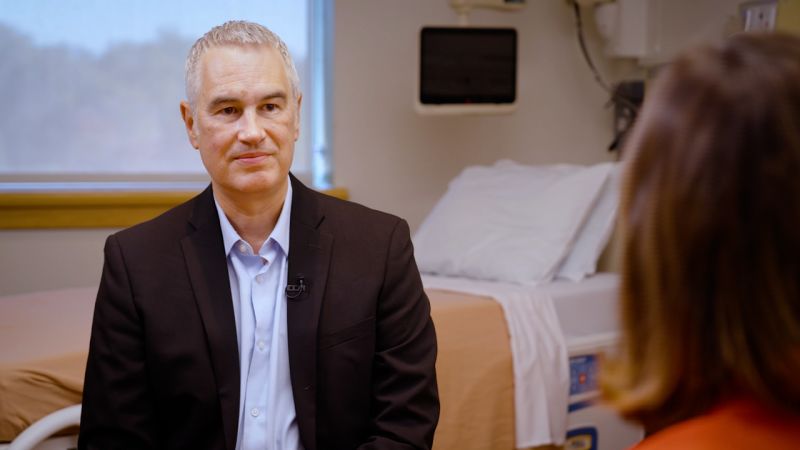NIH Nutrition Researcher Resigns Amid Allegations of Censorship Under Kennedy Administration

The resignation of Dr. Kevin Hall, one of the NIH’s most notable nutrition researchers, is emblematic of a growing concern: the suppression of scientific inquiry by federal agencies under political pressure. Hall’s work, which meticulously examines the effects of ultraprocessed foods on human health, has long been considered a cornerstone in understanding the correlation between diet and chronic diseases. Yet, his claims of censorship under the Kennedy administration paint a damning picture of bureaucratic interference that stifles unbiased research.
One must ask: How can an administration claim to prioritize public health while simultaneously crippling the very research it purports to support? Hall’s departure is not an isolated incident; rather, it is a symptom of a broader issue where political narratives override the pursuit of truth. It is appalling that Hall found his work edited and diminished to fit preconceived notions, especially given that his studies—such as the groundbreaking 2019 findings on ultraprocessed diets causing overeating and weight gain—are vital for informing public policy.
Robert F. Kennedy Jr., appointed by President Trump to lead the Department of Health and Human Services, initially inspired hope among nutrition researchers with his “Make America Healthy Again” agenda. His stated goals—removing ultraprocessed foods from schools and scrutinizing government conflicts of interest—seemed aligned with evidence-based strategies. However, Hall’s resignation suggests that these promises are hollow if scientific integrity is sacrificed for political expediency.
The censorship allegations, particularly concerning the March 4 study on brain responses to ultraprocessed foods, reveal a troubling trend. Despite the study’s robust methodology—being the largest of its kind—it was downplayed by HHS officials, reportedly to protect narratives about ultraprocessed food addiction. This is not merely a bureaucratic hiccup; it is an assault on the scientific community’s ability to inform and educate the public. When researchers like Hall are silenced, the losers are ordinary Americans, who remain uninformed about the health risks in their food environment.
It is noteworthy that NIH Director Dr. Jay Bhattacharya pledged during his confirmation hearings to eliminate censorship within the agency. Yet, Hall’s resignation, coupled with his inability to secure responses from leadership, raises serious doubts about Bhattacharya’s commitment to this promise. The administration’s failure to support randomized controlled trials—despite their status as the gold standard of research—further underscores the lack of genuine investment in improving the nation’s nutrition.
Hall’s departure also underscores the hypocrisy in the federal government’s handling of scientific priorities. Despite Kennedy’s rhetoric about deploying NIH and FDA to study food additives and chronic diseases, Hall was forced into early retirement due to bureaucratic constraints and a 30% cut to NIH clinical center beds. This reduction in resources directly hinders the ability to replicate and expand critical studies, leaving the scientific community unable to address pressing health crises.
As someone who scrutinizes government overreach and systemic inefficiencies, I find this situation particularly infuriating. The suppression of Hall’s research is not just an affront to science; it is a clear example of how bureaucratic inertia and political agendas can undermine public health. The federal government’s push to shed workers, including Hall, only adds insult to injury, raising questions about whether such strategies are aimed at silencing dissent within its ranks.
Hall’s work has exposed the toxic nature of America’s food environment, which is dominated by ultraprocessed foods that contribute to obesity and chronic disease. His resignation is a stark warning that NIH may no longer be a sanctuary for unbiased research. If we are serious about transforming our food supply and making Americans healthier, we must demand accountability from agencies like HHS and NIH. The suppression of truth is not just a scientific betrayal; it is a moral one.
The Kennedy administration’s actions—or lack thereof—should be scrutinized rigorously. If political narratives continue to dictate scientific exploration, the consequences will be dire for public health and individual freedom. Hall’s departure is a call to action for all of us who value truth, transparency, and the integrity of science. It is time to demand better from those who claim to lead us toward a healthier future.
We are looking for an independent senior editor, please join us if you are interested
Follow Us
Telegram

 BSERVER
BSERVER




Leave a Comment